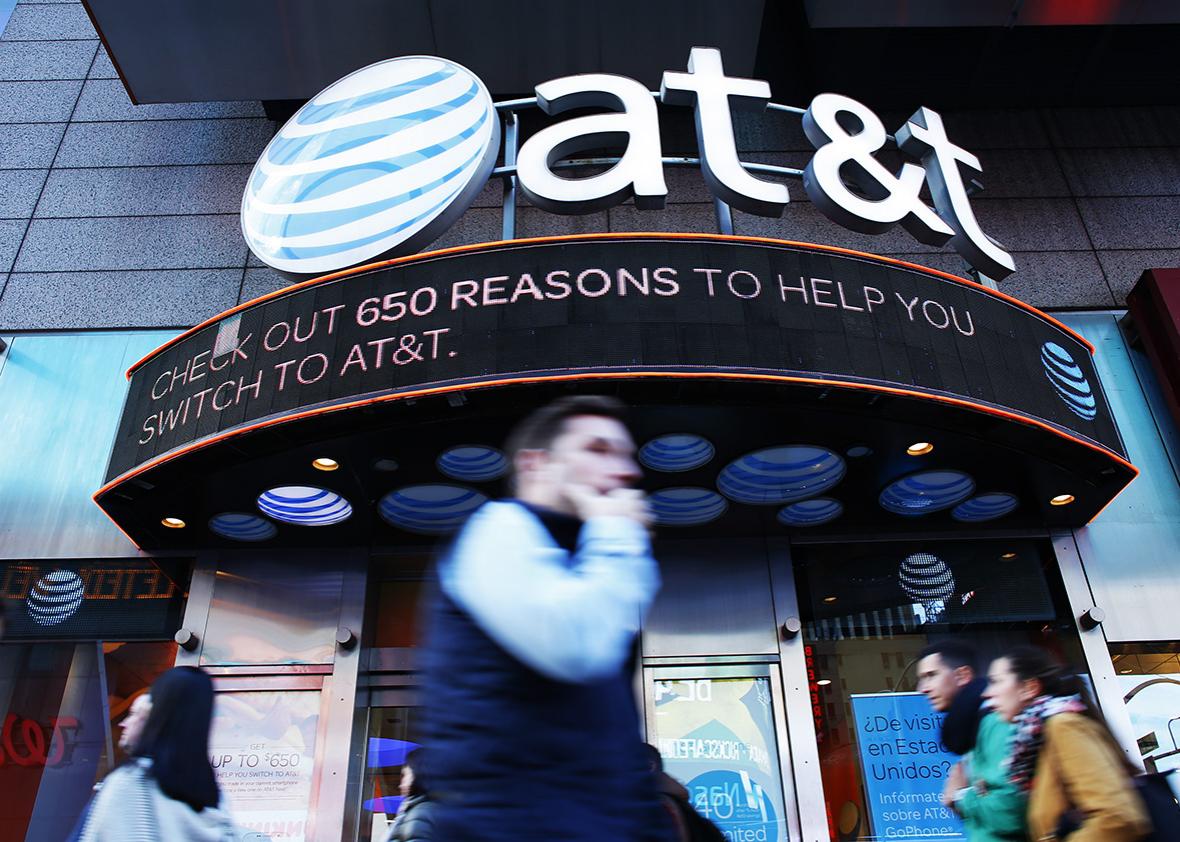A small revolt is brewing in the halls of power over telecommunications giant AT&T’s plan to buy entertainment and news giant Time Warner, with politicians from Tim Kaine to Bernie Sanders to Donald Trump expressing concern over the deal. It probably won’t come to much, because by the United States’ lax antitrust standards there may be too little business overlap between the two entities to matter.
Maybe, however, it’ll be a good thing for network neutrality, the notion that broadband customers, not the companies that connect them to the internet, should make decisions about what they want to do online—that is, decide what bits of information should get priority over others. As yet another big telecom buys up yet more “content,” the geeky-sounding but deeply important concept of net neutrality is more consequential than ever.
It’s also anathema to the telecom industry, which wants to decide what bits get to our devices in what order, at what speed, and whether they get there at all. Carriers enjoy monopolies or oligopolies, and that kind of control would let them extract more money from trapped customers of all kinds. So they’re trying to destroy the Federal Communications Commission’s current net neutrality rules in the courts, and in Congress if that doesn’t work. And even with the current FCC rules, telecoms have found—and are exploiting—several loopholes.
Consider the rapidly shifting media landscape. Comcast owns NBC Universal, a news and entertainment (mostly the latter) company. Verizon bought AOL, which owned several media sites including the Huffington Post, and is buying Yahoo, which is also a media company. (Although Verizon’s apparent motivation for the purchase has more to do with advertising technology than with Yahoo’s media holdings.) Cablevision, recently sold to Altice, a European media conglomerate, owned Long Island, New York’s largest newspaper. If AT&T gets ahold of Time Warner, a genuine media conglomerate, it will mean yet another creator of content will belong to one of the companies charged with delivering its product.
In an ideal world, internet service providers wouldn’t be permitted to control any of the content any more than AT&T is permitted to control what people say to each other when they make landline or mobile voice calls. As ISPs, they should have one job only: to connect us to the rest of the internet. But that train left the station a long time ago. And it appears that the Federal Communications Commission, Federal Trade Commission, and other regulatory bodies aren’t interested in revisiting the issue. Perhaps Congress will at some point, but optimism on that front is almost certainly futile in the near term.
So what is AT&T’s strategy, anyway? One approach is surely to punch more holes in net neutrality and widen the current ones. Various carriers including AT&T have been engaging in a practice they call “zero rating”—exempting from data caps certain content being delivered to users’ devices, often thanks to payments from the content providers. Zero-rating results in much harm, as the Electronic Frontier Foundation observes: It distorts markets, encourages walled gardens, reinforces choke points controlled by highly centralized companies, and more. It makes the internet less open.
Which is why AT&T and other carriers love it. As Fortune magazine suggests, a single company that controls one of the biggest mobile carriers, DirecTV satellite TV service, and the vast content of Time Warner would have enormous leeway to use its market power to make zero rating a larger and larger part of its operations.
Another part of the strategy is surely collecting, combining, and using data in more ways. AT&T and Time Warner have touted the idea that they could offer highly targeted advertising by combining the data they’d control.
Of course, highly targeted advertising works only by relentlessly spying on customers. And the FCC just announced rules that might—it’s far too early to know for sure—put a damper on internet service providers that are increasingly aiming to use what we do online for their benefit. The new rules would require customers’ permission for collecting and using at least some information.
AT&T’s attitude toward customers’ privacy and rights has been fairly contemptuous for a long time, of course. As the Daily Beast’s Kenneth Lipp revealed in a blockbuster scoop earlier this week, since at least 2008 AT&T has saved vast amounts data about customers’ communications, including mobile calls and phone locations, and has sold it promiscuously—no warrants required—to government agencies (and helped law enforcement in its relentless efforts to eviscerate the Fourth Amendment in the process).
The year is almost certainly no coincidence; it’s when a law was enacted giving AT&T and other carriers immunity from their activities in previous years, when they gave data to the government despite laws against it. AT&T shareholders may be pleased that the company has turned its surveillance practices into a profit center. Journalists at CNN, currently owned by Time Warner, should be appalled that they may soon be working for a company that might sell out them and their sources. So far, anyway, there’s no sign that AT&T or other carriers are storing or selling the contents of communications, such as calls, but metadata of that communication reveals a lot about the people who create it.
It still seems unlikely that regulators will block this buyout, even though they should on general principle. But they do have leverage to extract some conditions.
The key one is protecting net neutrality from further encroachments and rolling back the ones that are happening. At the very least, AT&T should be required to adopt strict net neutrality in its wired and wireless internet services. Anything resembling zero rating should be banned for at least 10 years, for starters. Will the people who can protect competition and open networks do the right thing this time?
